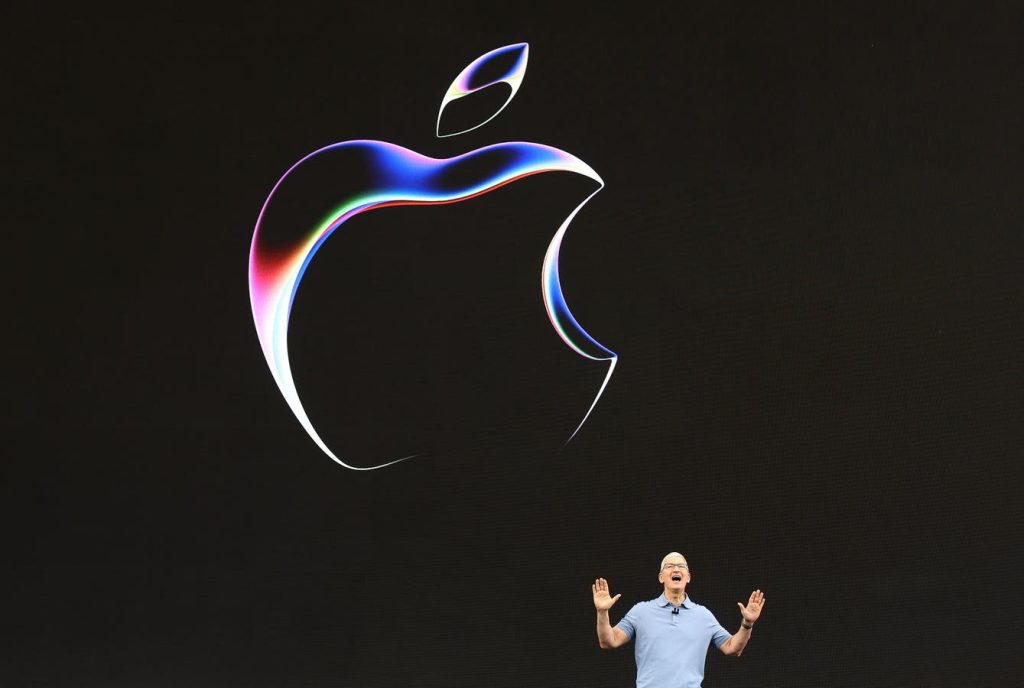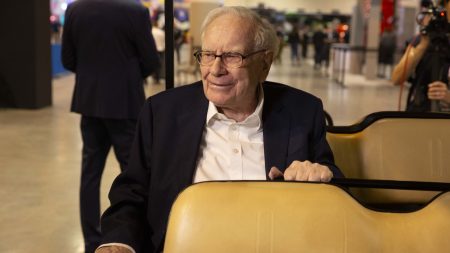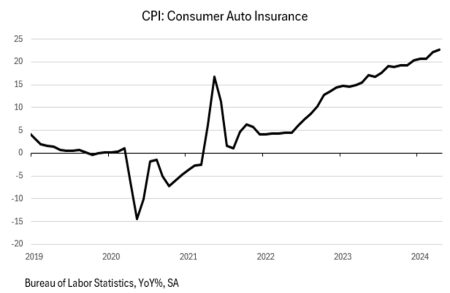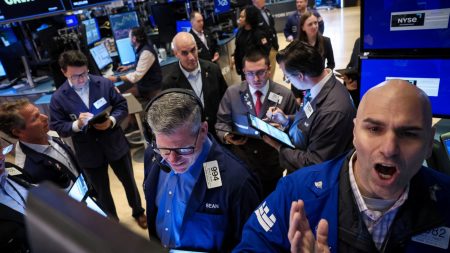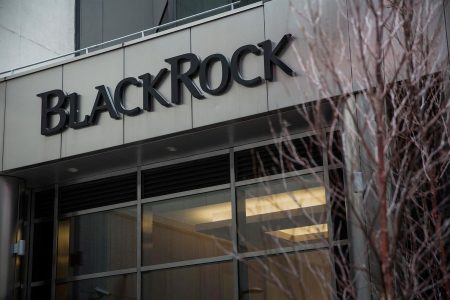Warren Buffett, the CEO of Berkshire Hathaway, announced a significant unloading of the company’s shares in Apple stock, while also heaping praise on the tech giant. This move raised questions about whether Buffett’s praise was a strategy to keep the stock price high as he sold off more shares. Despite Apple’s declining revenues and limited cash on hand, Buffett’s actions indicated that he was taking advantage of the opportunity created by Apple’s stock buyback to sell more of his stake in the company.
Buffett’s decision to sell a large portion of Berkshire Hathaway’s Apple stake came after the company reported a 13% drop in its investment in the iPhone maker in the first quarter of 2023. Despite praising Apple during a shareholder meeting and expressing confidence that it would remain Berkshire’s largest holding, Buffett still proceeded to sell approximately 116 million shares in the first quarter. He cited the potential for higher tax rates in the future as a reason for the sell-off, aiming to maximize after-tax proceeds from the stake.
Apple’s second-quarter report disappointed investors, with a 4% decline in total revenue and a 10% decrease in iPhone revenue. However, the company offset these losses by announcing a $110 billion stock buyback, the largest in its history, and a 4% dividend increase. This move helped boost Apple’s stock by 7.5% and provided optimism about the company’s future performance. Despite the challenges faced by Apple, the company remains optimistic about its growth potential, especially in areas like iPad sales, Services division, virtual reality, and artificial intelligence.
To counterbalance declining revenue and enhance its stock price, Apple may need to increase its buyback in future quarters. With free cash flow decreasing by 45% in the latest quarter and balance sheet cash not sufficient to cover the large buyback, Apple may resort to issuing bonds to finance the repurchase. This strategy would allow Apple to use profits stored in low-tax countries to repay the bonds while saving on higher tax rates in the US. Apple has used a combination of bonds and cash in the past to fund buybacks and dividends and is likely to continue this approach in the future.
Despite the uncertainties surrounding Apple’s financial strategies and performance, the company’s effective tax rate of 15.8% is significantly lower than the standard federal tax rate of 21%. Apple’s ability to save on taxes by using offshore profits to finance buybacks and dividends has been a successful tactic in the past. However, the company’s departure from its founder Steve Jobs’ innovative strategies has raised concerns about its long-term growth potential. Apple’s reliance on financial tactics to boost its stock price highlights the challenges the company faces in maintaining its position in the market. Buffett’s actions and Apple’s financial decisions suggest a complex path ahead for both companies in the competitive tech industry.





